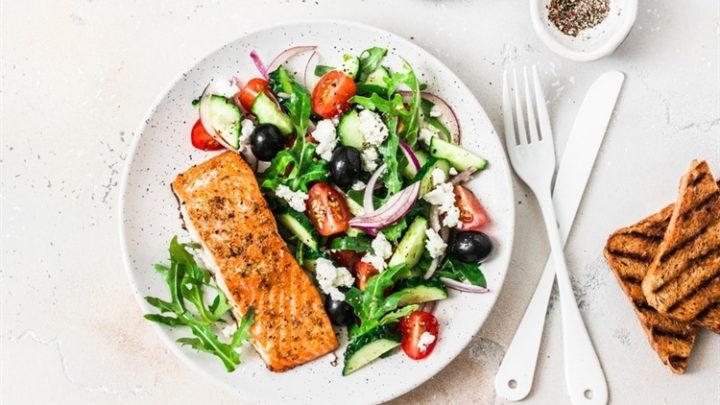Diets that last a long time have a significant impact on the gut microbiome. Microbiome composition and cardiometabolic risk have both been linked to specific dietary components. According to recent studies, the microbiome composition affects how well the Mediterranean diet (MedDiet) guards against cardiometabolic risk.
Aside from that, long-term dietary patterns like the MedDiet have been connected to particular facets of the microbiome composition, like the alteration of keystone species and the reduction of intestinal inflammation. Yet, there is little agreement among studies on how the MedDiet affects intestinal flora.
The effect of a lead-in diet on participants’ responses to a 48-hour MedDiet intervention was assessed in the current study.
The subjects followed a Mediterranean diet (MedDiet) for the first three days, then a Canadian diet (CanDiet) for the next 13 days, and finally a MedDiet for the final three days. The CanDiet was created to reflect the current macronutrient consumption in Canada and guard against immediate nutritional deficiencies.
The MedDiet recommended consuming more fruits and vegetables, grains, and plant-based proteins. It has higher levels of fiber, omega-3 polyunsaturated fatty acids (PUFAs), and monounsaturated fatty acids (MUFAs), while having lower levels of red meat and saturated fatty acids (SFAs).The participants were asked to consume the foods and beverages that the study provided, matching their calculated energy requirements. Each subject’s energy requirements were estimated by averaging the energy demands assessed using a validated web-based 24-hour dietary recall (R24W). The R24W was performed on three separate events, and the energy expenditure was estimated using the Harris-Benedict formula. The healthy eating index (HEI) was also derived using the R24W.
A total of 21 healthy young adults aged between 20 years and 34 years, consisting of 11 females and ten males with a body mass index (BMI) ranging from 18.5 to 30 kg/ m2, successfully completed the study. On the morning of each dietary modification, blood and stool samples were collected after an overnight fast. After 48 hours of consuming the MedDiet, V2, and V4 samples were collected. High-performance liquid chromatography coupled with tandem mass spectrometry (LC-MS/MS) was employed to assess PUFAs, monoacyl-glycerols (MAGs), and N-acyl-ethanolamines (NAEs) levels in plasma samples.The plasma levels of polyunsaturated fatty acids rose in response to the two MedDiet interventions relative to the CanDiet and the baseline. Several endocannabinoidome (eCBome) mediators such as N-eicosapentaenoyl-ethanolamine (EPEA), NAEs, and N-docosahexaenoyl-ethanolamine (DHEA) along with 2-docosahexaenoyl-glycerol (2-DHG), 2-eicosapentaenoyl-glycerol (2-EPG), and 2-MAGs exhibited elevations following both MedDiet interventions.
The first MedDiet intervention did not have a significant impact on short-chain fatty acids (SCFAs) and branched CFAs (BCFAs). On the other hand, valerate, propionate, isobutyrate, and isovalerate increased significantly after the CanDiet and subsequently dropped after the second MedDiet. There was no significant difference between the amounts of bioactive lipids in MedDiet at V2 and V4. However, analysis of V4 suggests that diet stabilization enhanced the metabolite response reproducibility.






















